
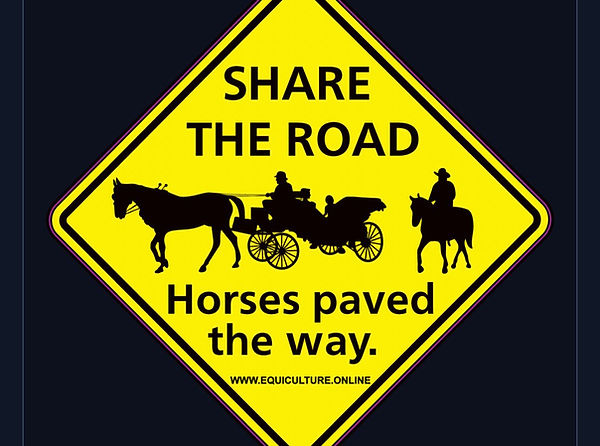
National road laws
Know the law. Protect our drivers, riders, and animals.
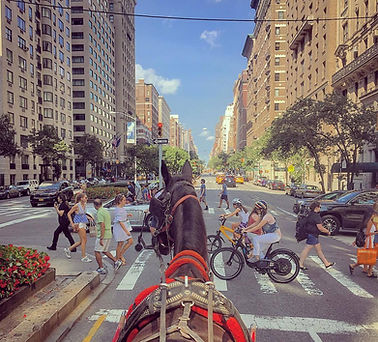
For Drivers (Cars, Trucks, Motorcycles):
Slow Down: When approaching a horse and rider (or horse-drawn carriage), reduce your speed immediately.
Give Space: Pass slowly and leave plenty of space—at least a full lane, if possible.
Don’t Honk: Loud noises can spook horses, causing them to bolt or kick.
Yield the Right-of-Way: Horses are often considered vulnerable road users. If it’s unclear who has the right of way, let the horse pass safely.
Be Patient: Riders may signal you to stop or wait—they’re looking out for safety.
Watch for Signs: Some rural roads have horse crossing signs, meaning you’re in a shared area.
Be extra alert.

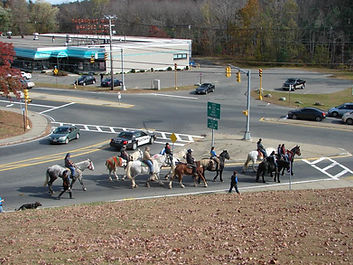
For Horse Riders:
Ride with Traffic: Horses are typically treated like vehicles, so they should travel on the right side of the road, with traffic.
Obey Traffic Signals: Riders must follow stop signs, traffic lights, and other road rules.
Wear Reflective Gear: Especially at dawn, dusk, or nighttime. A reflective vest or leg bands help others see you.
Hand Signals: Riders should use clear hand signals for turns or stopping, just like cyclists.
Stay Off Highways: Horses are often not allowed on interstates or high-speed roads. Local laws vary.
Special Notes:
-
Some states (like Pennsylvania, New York, and Kentucky) have specific horse-and-buggy laws, especially in Amish or farming areas.
-
In an accident, most states treat horses like vehicles. That means if a driver causes harm to a rider or horse, they can be held legally responsible.
Maine Road Laws
In Maine, both horseback riders and horse-drawn vehicle operators have the same rights and responsibilities as motor vehicles on public roads.
These laws are designed to protect all road users—especially our vulnerable equestrian partners.
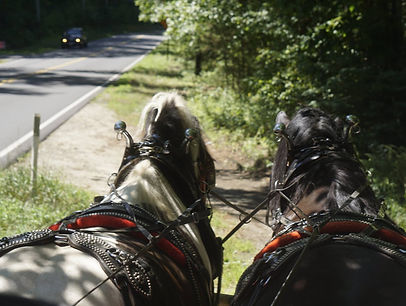
For Horse Riders & Horse-Drawn Drivers•
Obey Road Rules: Horses and carriages are treated as vehicles under Title 29-A §2055 of Maine law. Riders must follow traffic laws, ride with traffic, and obey signals and signs.
Use Hand Signals: Riders should use clear hand signals when turning, stopping, or signaling to others on the road.
Wear Reflective Gear: Visibility is crucial. Wear bright, reflective gear during dawn, dusk, or poor visibility conditions for safety.
Avoid Interstates: Horses are prohibited from limited-access highways, per Maine DOT safety regulations.
Signal When a Horse is Frightened: If your horse becomes spooked, you may signal drivers to stop. Drivers must remain stationary until it’s safe to proceed (Title 29-A §2055(2)).
Motor Vehicle Drivers:
🚗 Slow Down & Pass Safely:
Maine law requires motorists to pass horses and carriages with caution, maintaining a safe distance (minimum three feet recommended). See Title 29-A §2070(1-A) on vulnerable users.
Do Not Honk or Startle Horses:
It’s illegal to knowingly frighten or harass horses from a vehicle. Avoid loud noises, revving engines, or sudden moves (Title 29-A §2055(3))
Stop When Signaled: If a rider signals that their horse is frightened, you must stop and stay stopped until they pass safely (Title 29-A §2055(2)).
Respect Right-of-Way:
Riders and carriages are considered vehicles and vulnerable users under Title 29-A §2055(1) and Title 29-A §2056(3).
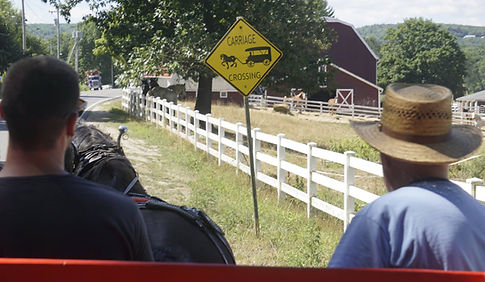
Legal Notes & Liabilities
• Vulnerable User Law
Maine recognizes riders as vulnerable users in Title 29-A §101(91-A) and enforces safe passing and yielding rules under Title 29-A §2070(1-A).
• Liability Protections
Maine’s Equine Activity Liability Law (Title 7 §4103-A) limits legal liability for equine-related injuries unless negligence is involved.
• OUI Laws & Horse-Drawn Vehicles
Operating Under the Influence (Title 29-A §2411) applies only to motor vehicles. Horse-drawn carriage drivers are not subject to OUI charges but should still avoid impaired operation for safety.
